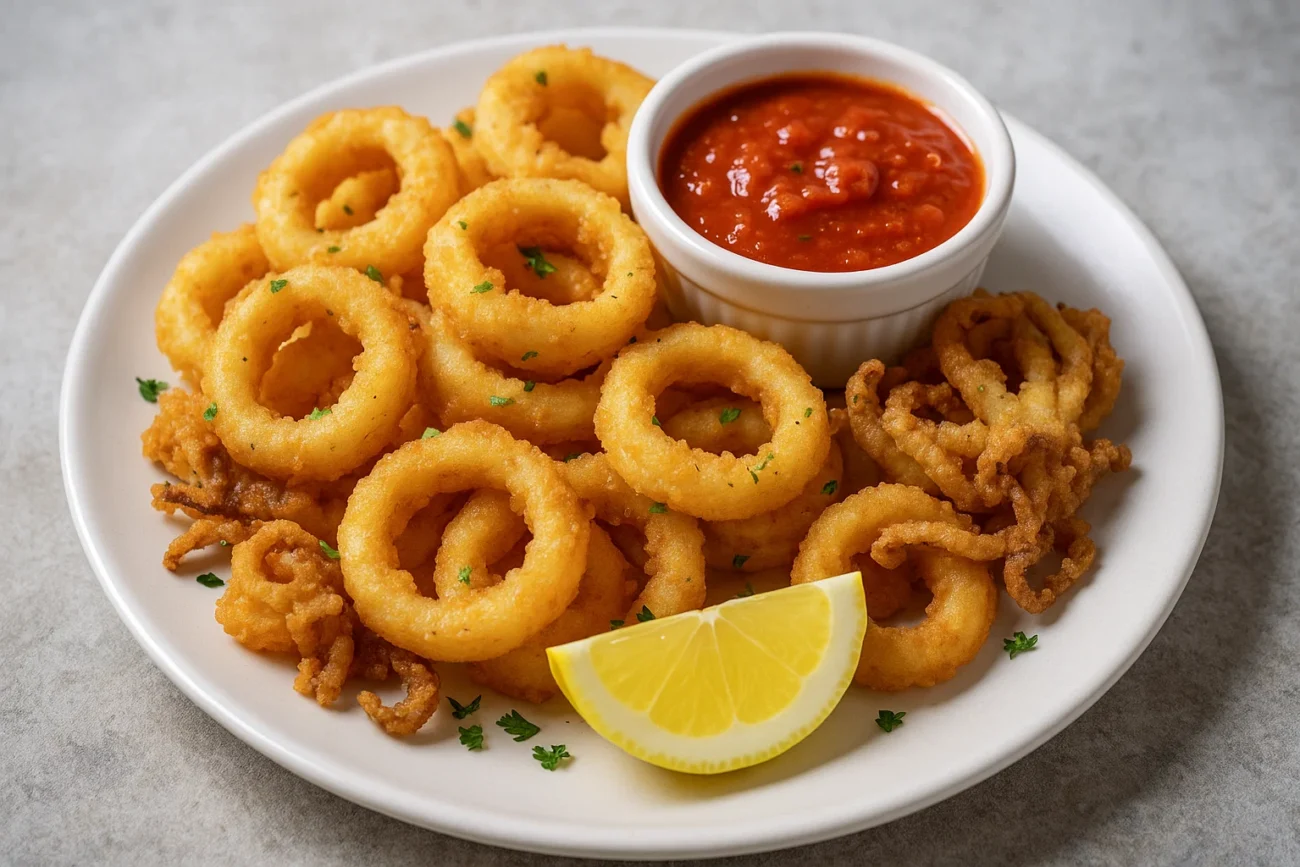In the realm of fine dining and Mediterranean culinary traditions, the term calamariere may not be widely known to the average diner, but it holds a quiet legacy within coastal cuisine. Derived from the word calamari, meaning squid in Italian, a calamariere refers to a specialist in preparing and presenting squid-based dishes, often found in seaside eateries, traditional Italian kitchens, or fine seafood restaurants.
Origins of the Term Calamariere
The word calamariere likely has its roots in regional dialects of Southern Italy, particularly in fishing villages where squid and other cephalopods were a daily part of life. The suffix “-iere” in Italian typically designates a professional role or trade, such as cavaliere (knight) or salumiere (cured meat specialist). Thus, a calamariere is essentially someone who handles, prepares, or serves calamari with skill and tradition.
Though rarely used today, the title calamariere evokes images of culinary artisans who could transform the humble squid into an elegant, flavorful dish with nothing more than olive oil, lemon, garlic, and fire.
The Calamariere’s Craft
Being a calamariere is not just about cooking squid—it’s about honoring tradition, flavor, and presentation. Here’s what sets this role apart:
-
Mastery of Squid Preparation: The squid is a delicate ingredient. Overcook it, and it becomes rubbery; underseason it, and it loses its character. A calamariere knows exactly how to clean, slice, and cook squid to highlight its natural sweetness and texture.
-
Diverse Cooking Techniques: From grilling whole squid over charcoal to deep-frying rings for the iconic calamari fritti, or even slow-cooking it in tomato sauce (calamari in umido), a calamariere is well-versed in multiple methods of preparation.
-
Pairing and Plating: Presentation matters. A calamariere pays attention to how squid is served—with fresh herbs, citrus zest, and perhaps a chilled glass of white wine or prosecco. Visual appeal is as important as taste.
-
Cultural Interpretation: In Greece, Spain, Turkey, and throughout the Mediterranean, squid dishes have their variations. A chef may draw inspiration from these cultures to create fusion recipes or honor regional authenticity.
The Modern Relevance of the Calamariere
Today, the idea of a calamariere might seem old-fashioned or niche, but there is a growing revival in culinary circles for specialized roles. Just as sommeliers and fromagers are respected for their expertise, the calamariere can be seen as a steward of seafood craftsmanship.
In modern restaurants, chefs and cooks who focus on sustainable seafood and nose-to-tail preparation methods are embracing the kind of knowledge and care a calamariere would bring to the table. Whether it’s responsibly sourcing squid or innovating new calamari-based dishes, the spirit of the calamariere is alive in contemporary seafood gastronomy.
Culinary Tourism and the Calamariere Experience
For travelers visiting coastal towns in Italy—like Amalfi, Sicily, or Puglia—seeking out a local calamariere (even if they don’t go by that title) can lead to an unforgettable dining experience. Some restaurants pride themselves on having a “squid master” in the kitchen who prepares everything from grilled tentacles to squid ink pasta.
Cooking classes, food tours, and seafood festivals often highlight squid dishes, and learning from a local expert who could be considered a modern-day calamariere adds cultural depth to any trip.
The Future of the Calamariere: Revival or Reinvention?
As culinary trends move toward sustainability, authenticity, and storytelling, the calamariere is poised for a renaissance—not necessarily in name, but in essence. Chefs and food enthusiasts alike are increasingly looking to the past to inform the future. This makes room for a revival of roles like the calamariere, where the focus is on respect for ingredients, technique, and tradition.
Modern calamarieri (the plural in Italian) may find their place in:
-
Upscale restaurants that spotlight seafood and seek chefs with a deep knowledge of cephalopods.
-
Cooking schools where the art of seafood preparation is taught to aspiring chefs.
-
YouTube or food media platforms, where a calamari specialist could showcase unique recipes and educate global audiences.
-
Sustainability-focused kitchens where full utilization of the squid (including ink, tentacles, and body) is not only economical but also environmentally responsible.
Even pop-up restaurants and food trucks could tap into this idea, offering niche, gourmet calamari dishes served with passion and storytelling—hallmarks of the calamariere legacy.
Symbolism of the Calamariere
More than just a culinary role, the calamariere also symbolizes:
-
Artisan knowledge passed down through generations
-
A bond between land and sea
-
The transformation of humble ingredients into gourmet fare
-
Mindful cooking—where every cut and seasoning has a purpose
In many ways, the calamariere stands against mass production and generic food culture. They represent craftsmanship, rooted in locality and personal touch. In a world that craves connection through food, the calamariere’s dedication to one specific ingredient reminds us of the beauty of specialization.
Becoming a Calamariere: Skills and Knowledge
If you’re inspired by the concept and want to become a modern-day calamariere, here are the skills you’ll want to hone:
-
Marine Biology Understanding – Know the different species of squid and their seasonality.
-
Cleaning & Filleting Techniques – Removing ink sacs, skin, and cartilage with finesse.
-
Ink Utilization – Learning how to use squid ink in risottos, pastas, and sauces.
-
Cooking Mastery – Understanding various cooking methods: sauté, grill, stuff, poach, braise.
-
Presentation & Plating – Designing elegant dishes that highlight the squid’s natural beauty.
And above all, respect for the ingredient.
Final Words
Though the title calamariere may still be obscure outside certain culinary circles, its meaning runs deep. It’s more than a job—it’s a tribute to oceanic heritage, Mediterranean identity, and slow, intentional cooking. As diners become more adventurous and chefs look to elevate their craft, the calamariere can step forward not just as a squid expert but as a storyteller of the sea.
Whether you encounter one in a tucked-away trattoria or become one in your kitchen, remember: a calamariere doesn’t just serve food—they serve history, culture, and soul on every plate.
